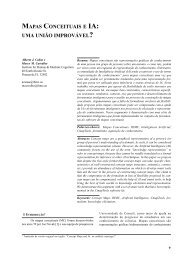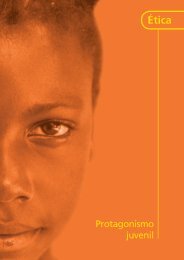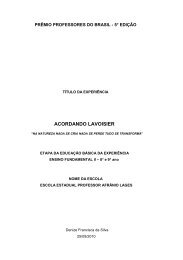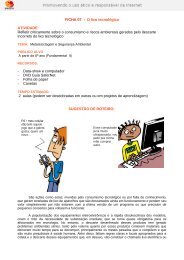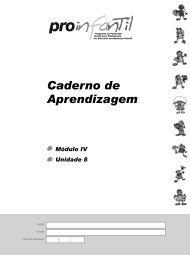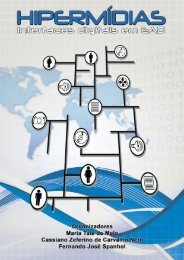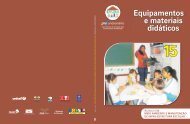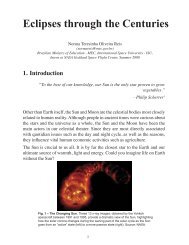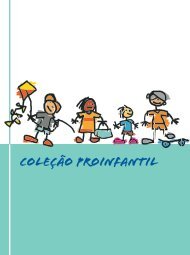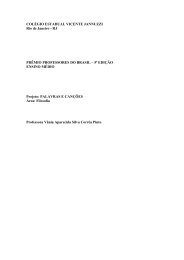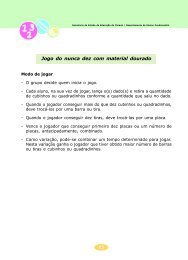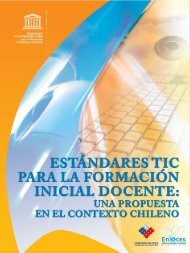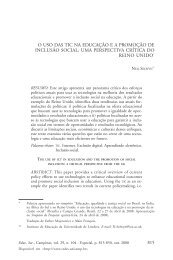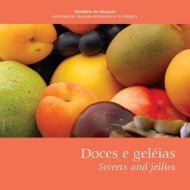BIO-CULTURAL COMMUNITY PROTOCOLS - Portal do Professor
BIO-CULTURAL COMMUNITY PROTOCOLS - Portal do Professor
BIO-CULTURAL COMMUNITY PROTOCOLS - Portal do Professor
Create successful ePaper yourself
Turn your PDF publications into a flip-book with our unique Google optimized e-Paper software.
APPENDIX<br />
The meaning of the Raika Bio-cultural Protocol<br />
for Livelihoods and Biodiversity Conservation<br />
Ilse Köhler-Rollefson 1<br />
The Raika (or Rebari) are the largest group of pastoralists in Western<br />
India and their roots can indirectly be traced back to Afghanistan.<br />
There is historical and folkloric evidence that the Rebari filtered into<br />
what is now Rajasthan and Gujarat in the turmoil and displacement<br />
that accompanied the Muslim incursions to the Thar Desert in the period<br />
from the 12th to the 17th centuries. The Maru Raika and Godwar Raika<br />
currently live across Rajasthan and several other groups live in Gujarat<br />
and across the border in the Tharparkar area of Pakistan. Especially in<br />
Rajasthan, their identity is closed linked to the camel and they were<br />
appointed by the Maharajahs of Bikaner, Jaisalmer and Jodhpur,<br />
and other king<strong>do</strong>ms to take care of their camel breeding herds.<br />
This relationship lasted until India obtained Independence in 1947.<br />
Looking at the larger social context in which Raika society is<br />
embedded, it is evident that they have a medium position<br />
in the caste-system - on a par with agricultural communities<br />
- and are not resource poor. As livestock is a self-replenishing<br />
resource they have always been able to generate cash by<br />
selling a few animals and because livestock can migrate to<br />
wherever rain has fallen, they have many advantages over<br />
the settled farming communities, at least as long as there<br />
were ample common grazing lands available.<br />
1. Ilse Köhler-Rollefson, PhD, Projects Coordinator of League for Pastoral Peoples and Advisor to Lokhit Pashu-Palak Sanstan.<br />
Despite seemingly favourable factors, the Raika are commonly<br />
described as the most backward community in Rajasthan and<br />
have very low literacy levels, especially among women.<br />
Their general progress has been slow by comparison with<br />
some of the untouchable castes, such as the Meghwal, who<br />
have managed to get their people into ministerial positions,<br />
while the Raika <strong>do</strong> not have a single M.P. and only recently<br />
their first representative became elected into the Legislative<br />
Assembly of Rajasthan.<br />
74



